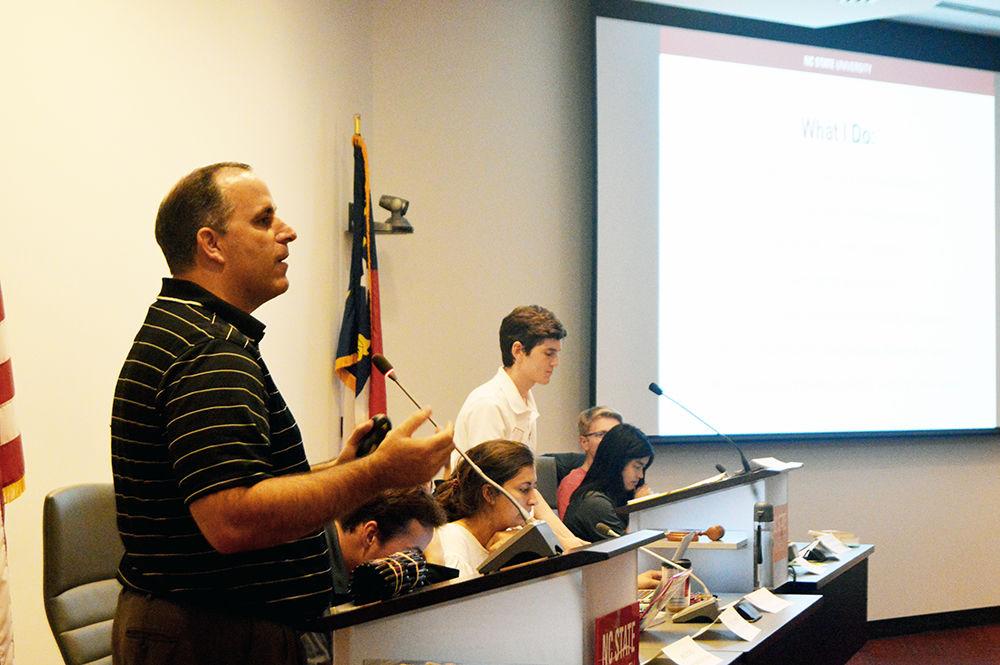The NC State Student Senate meeting in Talley Student Union Wednesday night included a presentation from Student Ombuds Services, senator appointments and first reading of a new bill aimed to create caucuses within the senate.
The Student Senate began its meeting with the traditional call to order by Student Senate President, Mitchell Moravec, a fifth-year studying materials science and engineering and psychology.
Members then welcomed Mike Giancola, assistant vice provost of the Student Ombuds Service on campus, to the stand. Ombuds is an office on campus that provides personal guidance to students for conflict management, prevention and resolution.
“Any issue that is important to you as a student is one that you could come to me as the Ombuds,” Giancola said. “There are basically four main things that you can expect of me and hold me accountable to in my work as the Ombuds: confidentiality, informality, impartiality and independence.”
Giancola discussed how students can approach and discuss a conflict within the Ombuds office. As vice provost of Ombuds, he also provides feedback on issues to other departments on campus that may affect students.
The Senate then moved to the approval of appointments of senators. Christine Brugh, Sachin Kumar and Jasper Bledsoe were appointed, and the new senators were sworn into office.
The first reading of legislation included Senate Bill 54, the Senatorial Caucus Act. The act, proposed by Senator Sean Harrington, a fourth-year studying political science, aims to provide a forum for groups within the Senate to meet to address similar concerns and issues.
“There are certain causes that can meet with multiple committees, in my opinion,” Harrington said. “Committees are more or less a driving force to get policy passed; caucuses are a way for people to, more or less, talk about specific issues toward a community.”
Each caucus would elect a chairperson, vice chairperson and secretary. Each caucus must have at least six members and would need to be reviewed and approved by the student senate president.
“I know when people think caucus they automatically think ‘party’ — this is nothing to do with that,” Harrington said. “This is totally about giving a kind of formality to senators who wish to get together and talk about policy ideas that don’t necessarily fall into one committee.”
Harrington said that the development of caucuses within the Student Senate would help to create an organized structure for a formal group to meet.
The Student Senate will have their next meeting on Oct. 25 in room 4140 of Talley Student Union.








